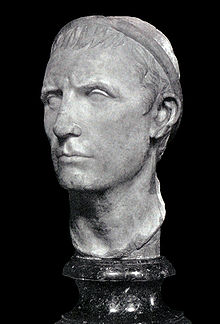1. A Taste of True Glory
I. A Taste of True Glory
"A kingdom being born of a man's death, A kingdom made great of an army's slaughter." - Panaetolus, Commander under Antiochus III
"A kingdom being born of a man's death, A kingdom made great of an army's slaughter." - Panaetolus, Commander under Antiochus III

The Greco-Bactrian Kingdom (~200BC)
The Kingdom of Greco-Bactria had been formed by Diodotus I, the governor of Bactria. Since the days under the rule of the Achaemenid Empire, Bactria had surprisingly formed a Hellenic culture, presumably from Greek exiles. Because of this, Bactria had grown a distinct Greco-Bactrian identity and when Antiochus II, ruler of the the Seleucids, died, Diodotus would declare himself "King of Greco-Bactria". Being so far and having the Seleucid Empire stuck in a bitter conflict west, the Greco-Bactrian kings were left on their own devices until the rule of King Euthydemus I.

King Euthydemus I of Greco-Bactria

King Antiochus III of the Seleucid Empire
While the Greco-Bactrian army waited during the day, Antiochus had learned that Euthydemus's forces resided in a nearby settlement at night. So in the cover of darkness, he sneaked some of his army, 2,000 cavalry and 10,000 peltasts, across the river, becoming quite tired and worn down. When morning came, Euthydemus realized this and sallied his cataphracts and charged the enemy line. The infantry had yet to organize themselves, so Antiochus charged in as well with his 2,000 cavalry to buy the infantry time to form up ranks. The Battle of the Arius had begun.

Charge of Euthydemus's cataphracts
"Charge!" Antiochus bellowed, as our horse's trots turned into gallops.
My eyes tired from the night's crossing, but all was worth it for glory. I could see the heat-skewed line of the Bactrians, and I was filled with excitement. I was ready to clean my blade with blood once more. The howls of my comrades reinvigorated my soul, although my body was still adjusting. I looked at the grass grass, I looked at my wood-brown stallion, and then I looked upon the enemy, and we collided. The sound was like millions of thunderstorms striking upon the same tree.
Battle would ensue, as my comrades were cut down and we cut down them as well. We continued the overall slaughter of both sides, until I heard a huge crash. I turned my head to see two lines of Bactrian cavalry at our flanks. The force had not wished to decimate us, it wished to buy their allies time to maneuver, and maneuver they did. I instantly knew what the unorganized peltasts were facing as well Two walls of cavalry at the flanks, with the only escape being the river. Some of us turned to meet the new line of enemies. I and a few of my comrades, however, was called to attempt an escort for Antiochus's escape. We found him on the ground, horse dead, and a spear near the king. His mouth were filled with bloodied gaps, as his stomach was gouged, blood painting his armor. Me and another comrades approached him, trying to get him on a horse, but at that time...he was already dead.
"Antiochus is dead!" a man wailed, as he escaped for my view.
In a near instant, I saw men try to flee, only to be cut down. I jumped back on my horse and I tried to think. I looked upon the northern line, our first contact with the enemy.
"We must break out!" I barked, as I pointed to the front line of fighting. "Attack there!"
We tried to break out at the northern line of the enemy. We could nearly see escape, my heart pounding. Then, a spear lodged into my horse, and I fell into the battleground, surrounded by corpses and steeds. I dodged my comrades' horses, as I tried to escape from direct battle. Gallops of horses grazed me, but I continued forward. Against all odds, I made it to the back of the line, and I could clearly see the fleeing infantry, crossing the river, as cavalry cut them down. Then, I turned to see a horse run past, me as I could feel the sudden burn of pain and the nothingness of death.

Coinage of Arsaces II

Parthian horse archers
Arsaces II of Parthia would rally the cities and they complied. Soon, a Parthian military force was formed. The Parthians would constantly barrage the army with harassment, until a united force was made by Panaetolus, a surviving commander of the Battle of the Arius. Before he could meet Arsaces in battle however, Queen Mother Laodice, regent for the young King Antiochus IV, would call his forces back to the western side of the Seleucid Empire.
During that time however, Euthydemus had been reinforcing his army. Infantry and archers joined the ranks of the cavalry. Many of them were battle-hardened and yearned for more. So as Panaetolus's force left the east, the Bactrians would go south to have revenge and another taste of Seleucid blood.
---
*Euthydemus was currently at Tapuria, not Bactra, when Parthia fell. I made Euthydemus reside in Bactra so he could have a chance to gather more men, just that.
Last edited:

